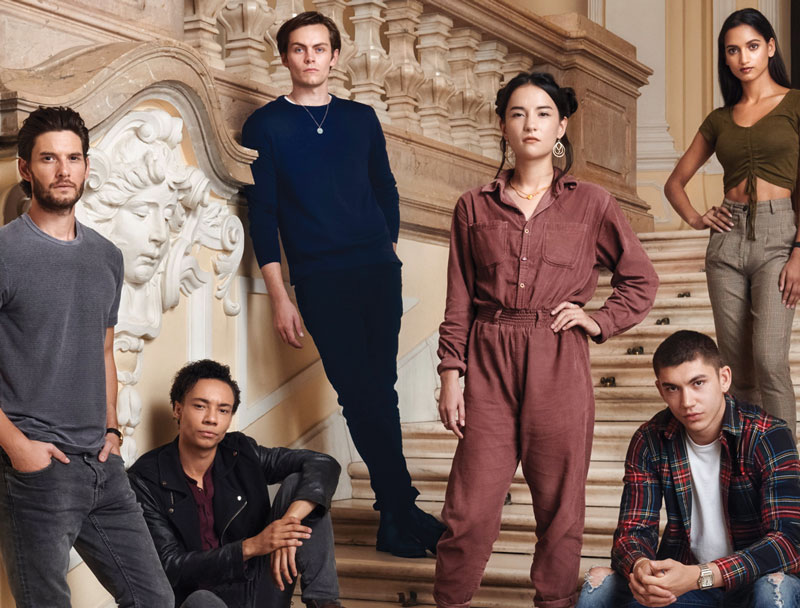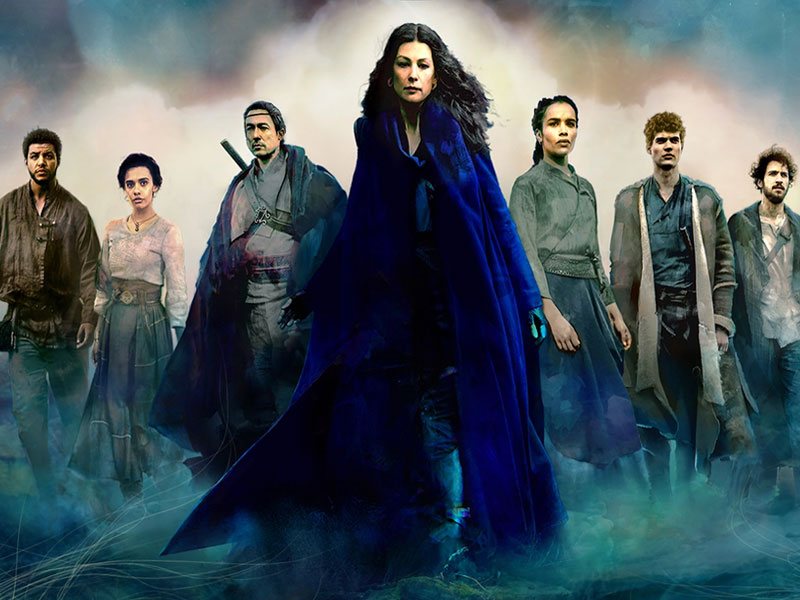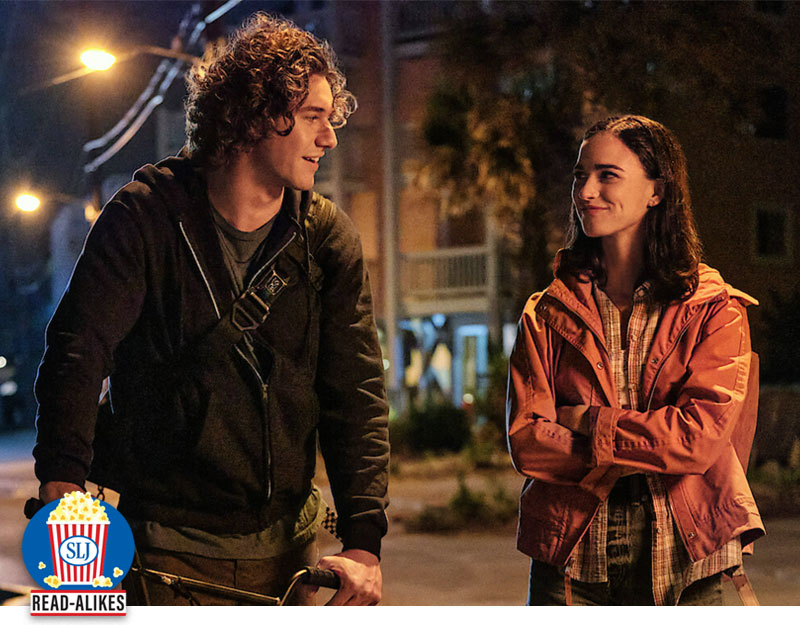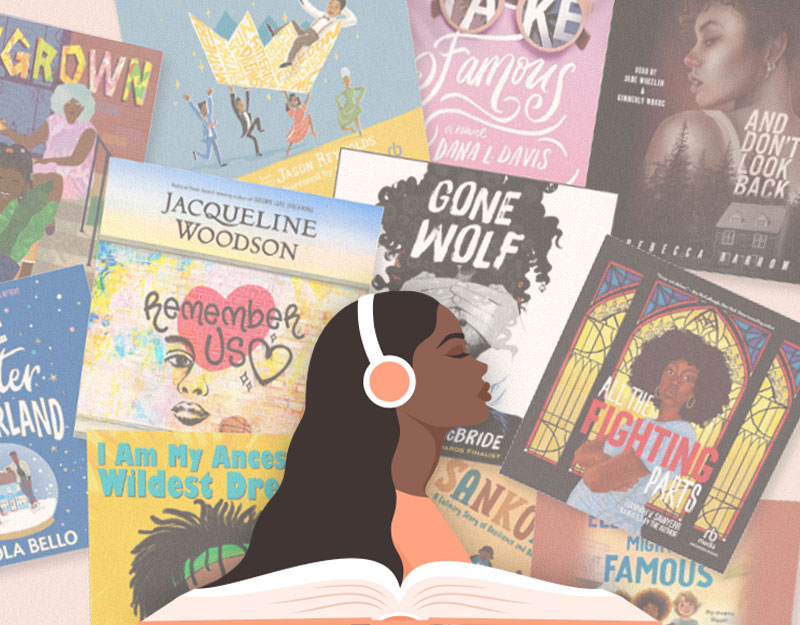Hands Off, Hussy! Hot Men of Children’s Literature Under (Too Little?) Fire
 As I see it, the relative success of the blog A Fuse #8 Production hinged almost exclusively on being in the right place at the right time. I started the site at the cusp of the blogger movement, a time when they were just beginning to be viewed as hip and new. I specialized in a simultaneously popular and somewhat obscure topic. I was a children’s librarian in Manhattan, the heart of the publishing industry. Right place. Right time. Right content. It’s easy almost a decade on to forget that it wasn’t entirely luck based. I did the reviews and round-ups but there was one feature of my site that I started partly because I found the topic funny and partly because like any good blogger I was looking for hits. For a topic that could simultaneously shock and amuse. Thus was born the series Hot Men of Children’s Literature.
As I see it, the relative success of the blog A Fuse #8 Production hinged almost exclusively on being in the right place at the right time. I started the site at the cusp of the blogger movement, a time when they were just beginning to be viewed as hip and new. I specialized in a simultaneously popular and somewhat obscure topic. I was a children’s librarian in Manhattan, the heart of the publishing industry. Right place. Right time. Right content. It’s easy almost a decade on to forget that it wasn’t entirely luck based. I did the reviews and round-ups but there was one feature of my site that I started partly because I found the topic funny and partly because like any good blogger I was looking for hits. For a topic that could simultaneously shock and amuse. Thus was born the series Hot Men of Children’s Literature.
During the series’ heyday I received surprisingly little criticism. It wasn’t that people necessarily approved of a children’s librarian calling different guys in the industry “hot”, but they at least got the joke. Rather than judge male authors and illustrators on the quality of their work I’d discuss the slant of their eyebrows. There’s no real reason to do that kind of a thing unless you’re just having fun. At its peak the series would get shoutouts at librarian previews, which stroked the ego. It was mentioned when Jarrett Krosczka was handed the key to the city of Worcester And, like most things, folks tried to use it for marketing purposes. I’d have publishers suggest to me new up-and-coming debut fellas as possible subject matter. Men would suggest themselves or, far worse, their wives and girlfriends would nominate them. And while it is difficult to tell a man he isn’t hot, it is infinitely worse to tell his mate.
ADVERTISEMENT
ADVERTISEMENT
In the end it had done its job (getting me attention) and I could retire it. HMOCL, as we affectionately dubbed it, had been an innocent lark. An innocuous poke at an industry.
Or was it?
What if HMOCL was more than that? What if it paved the way for a new kind of marketing attitude? Think about it. Our industry is dominated by women and quite a few gay men. Heterosexual fellas exist but do not make up the majority of children’s booksellers and librarians. Did publishers discover that raw sex appeal was a legitimate way to sell to a willing juv lit public?
 These questions arose recently with the publication of the New York Magazine article The Children’s-Book Guy: An Ideal Crush Object. I came to the piece as I come to many hot topics these days. Which is to say, by reading infuriated comments on Twitter and then working my way backwards in time to the original article.
These questions arose recently with the publication of the New York Magazine article The Children’s-Book Guy: An Ideal Crush Object. I came to the piece as I come to many hot topics these days. Which is to say, by reading infuriated comments on Twitter and then working my way backwards in time to the original article.
Children’s literature hate bait happens, so I set out to read the piece proclaimed by so many to be anti-women / hateful / damaging / etc. I read it. I read it again. And one thing was very very clear. This was definitely Hot Men of Children’s Literature 2.0.
To sum up, the article is a chirrupy little celebration of the fact that there are a lot of cute “children’s book guys”. It names names. It fantasizes about what it would be like to be with such a fellow. And it identifies female fans of children’s literature as a distinct type:
“I’ve been to my fair share of kids’-book events and long admired the women who have made careers out of stepping into the brain of a little kid and shepherding them through imagined worlds of joy and wonder. These women are generally in their mid-50s, with great glasses, admirably draped Eileen Fisher duds, and expensive sandals.”
In doing so, it made these actual women, and their bookseller/librarian/academic counterparts just a touch grumpy (my favorite comment coming from Anne Ursu on Roger’s blog saying, “I’m amused that she thinks women who write children’s books can afford Eileen Fisher”). As it happens, the author provided an apology for the piece afterwards, which is worth reading.
My job at this point was to find out if folks were inclined to lump me in with this piece. And occasionally someone would, but never angrily. Roger Sutton mentioned it jovially on his blog. One person speculated that my series was different because I was an insider and this woman was clearly an outsider. Hands off, hussy! Judging male children’s book industry insiders in a sexist manner is Betsy’s job!
ADVERTISEMENT
ADVERTISEMENT
Initially I tried to distance myself. My series was satirical, I said. I included more than just adorable 20 and 30 year olds. I did dead guys even! But at the end of the day how different was I really? I may not have written in her Carrie Bradshaw-esque style, but the content was the same.
 Back in the day I was asked why I didn’t do a Hot Women of Children’s Literature companion series. The answer was that I couldn’t figure out how it would work. Women in the industry don’t incline towards female creators based on their relative physical “hotness”. But to suggest that they don’t incline towards women for similar reasons isn’t entirely true either. It took me years before I realized that in the children’s literature world there IS an equivalent to hotness in men: Relatability in women. Cute can be cool. Adorkable can be desirable. But if that female author or illustrator comes off like a best friend? Fantastic! Now look at some of the female authors and illustrators lauded by, say, The Nerdy Book Club. Katherine Applegate? Wouldn’t you want to spend time having brunch with her? Ame Dyckman? Maybe the sweetest human being I’ve met in years. Lauren Castillo? So friendly and fun. Rita Williams-Garcia? Quite possibly the world’s most enjoyable human being. Kate DiCamillo? Hee-larious! None of these women are stand-offish or curt with kids. And they strike their fans as someone you’d want to spend more time with, personally.
Back in the day I was asked why I didn’t do a Hot Women of Children’s Literature companion series. The answer was that I couldn’t figure out how it would work. Women in the industry don’t incline towards female creators based on their relative physical “hotness”. But to suggest that they don’t incline towards women for similar reasons isn’t entirely true either. It took me years before I realized that in the children’s literature world there IS an equivalent to hotness in men: Relatability in women. Cute can be cool. Adorkable can be desirable. But if that female author or illustrator comes off like a best friend? Fantastic! Now look at some of the female authors and illustrators lauded by, say, The Nerdy Book Club. Katherine Applegate? Wouldn’t you want to spend time having brunch with her? Ame Dyckman? Maybe the sweetest human being I’ve met in years. Lauren Castillo? So friendly and fun. Rita Williams-Garcia? Quite possibly the world’s most enjoyable human being. Kate DiCamillo? Hee-larious! None of these women are stand-offish or curt with kids. And they strike their fans as someone you’d want to spend more time with, personally.
This is NOT to say that they aren’t talented. Of course they are! But being prejudiced towards a children’s book creator isn’t always gender specific. We are influenced by looks and attitudes. Remember my post on whether or not you have to be a performing extrovert? It applies here.
Fortunately we are also attracted to sheer raw talent. Or, more precisely, our kids are. Because kids love what they love. They don’t adore Judy Blume because she’s friendly but because her books still speak to them. They don’t check out Mo Willems because he is hot (a matter of opinion, of course) but because his books are funny as all get out. And while marketing to the “emotions” (shall we say) of the gatekeepers may work initially, we can all adore a title regardless of whether or not we’ve ever seen so much as a photograph of its creator(s). I trust the kids in these matters. Blood will out. Good books will out. And Hot Men / Relatable Women? I suspect they’re not going anywhere.
[Full credit for the images in this piece to BookRiot and their article (by the fabulous Minh Le) 5 of Hollywood’s Sexiest Men Want to Read You Children’s Books]
Filed under: Uncategorized
About Betsy Bird
Betsy Bird is currently the Collection Development Manager of the Evanston Public Library system and a former Materials Specialist for New York Public Library. She has served on Newbery, written for Horn Book, and has done other lovely little things that she'd love to tell you about but that she's sure you'd find more interesting to hear of in person. Her opinions are her own and do not reflect those of EPL, SLJ, or any of the other acronyms you might be able to name. Follow her on Twitter: @fuseeight.
ADVERTISEMENT
ADVERTISEMENT
SLJ Blog Network
2024 Books from Pura Belpré Winners
Winnie-The-Pooh | Review
Parsing Religion in Public Schools
Crafting the Audacity, One Work at a Time, a guest post by author Brittany N. Williams
ADVERTISEMENT








Sorry, that one just changes Love You Forever from disturbing to scary.
Yeah, I may have been distracted by the picture.
☺ A few of us of thought of you as soon as we read the article, Betsy!
I also thought of Jama of Jama’s Alphabet Soup, who has recently launched her HotTEAS of Children’s Lit… For very good reasons, I can’t and don’t tar Jama with the same “squickily objectifying” brush I use for that NY Mag article — for one thing, she’s everyone’s cheerleader 24/7, and is so very much more generous with her “hottie” label than most of contemporary culture. AND she also celebrates THE BOOKS, which is the whole point of her whole blog, and perhaps should be the point of our admiration of any writer, falling into whatever elusive category of “hot” or not. I so appreciate Jama because she celebrates everyone, all the time, male and female alike, and wanted to raise her as an example (perhaps wide of the point of your piece) of This Is How It’s Done.
I’ve always wanted to learn how to play the banjo. In the meantime, I’ll have to rely on my great glasses (I’m too short for Eileen Fisher) and wearing my chicken hat.
xo, Chicka Chicka Boomer Boomer 😉
For what it’s worth, Betsy, I thought the “Hot Men of Children’s Literature” thing was a lark — jokingly objectifying men (for a change), but men who are not models or actors or athletes. One of my colleagues (or perhaps it was a grad student? I don’t remember) printed out the one featuring me & hung it up in the department copy room. I didn’t take offense… because it (your post, and posting it on the wall) was a joke, and because “hot” is a frankly ludicrous description of me.
I think that a “Hot Women of Children’s Literature” wouldn’t work quite as well because, in that case, it’d be hard to invoke a sexist trope with irony. Since objectifying men is much more rare (and elevating the physical attributes of children’s authors is almost unheard of), HMOCL makes a much better affectionate joke. “Hot Women of Children’s Literature” sounds like a Maxim piece on children’s publishing. (Side note: Does the magazine Maxim still exist?)
Oh good. I was sort of waiting until someone could put into words my intentions, but far better than I ever could. This is precisely why I couldn’t do the Hot Women version, even though I was a woman myself. Thank you!
What Phil Said.
Until we have achieved full gender equity (AHAHAHAHAHAHAHAHAHA/wipes eyes) the objectification of men and the objectification of women aren’t equivalent or parallel.
Also: YOU did Hot Men of Children’s Literature. (I mean, “created.” Not, like, DID did. Unless you did them before you were married or have an arrangement; I don’t know.) You are someone everyone KNOWS is knowledgable about books for children, and you are an advocate for both male and female authors. The person who did the NYMag piece was an outsider, and seemed utterly oblivious to the notion that a) she was not treading new territory and b) there are longstanding problems of men being lionized in children’s book writing at the expense of women. So yeahno.
You know, Betsy, honestly? The difference is probably how tired lots of us have gotten in the last ten years of seeing our male colleagues overwhelmingly promoted, praised, invited, featured, and awarded out of all proportion to their numbers in the field.
Kids may not care who wrote a book, but kids aren’t the ones buying children’s books. All that attention translates into sales. And that means the children’s book industry is one in which men, as a group, have higher earning power just for being male–along with a higher chance of having children ever come across their books. Kids love what they love, but only if it’s there for them to love.
I think a large part of the situation is that authors and illustrators are more visible today, so being charming helps a lot. But the bar for “charming” is set much higher for women. If a man is young(ish), attractive(ish), or even just amiable, he’ll get an adoring reception from teachers, librarians, and other important gatekeepers. A woman has to be young, hip, great-looking, wildly ebullient, incredibly articulate, and/or have neon hair.
I should say that all my current publishers have given my books great support, and people in the field have been extremely nice to me despite my total lack of any of the abovementioned qualities and the fact that I have never heard of Eileen Fisher. So this is not a personal complaint. But when we all regularly see conference panels of one woman and three men speaking to audiences of several hundred women, or read a list of “10 exciting new children’s books” by nine men and one woman (and that one woman is J.K. Rowling), the numbers really do speak for themselves.
This is very interesting to me. That the passage of time might play a factor in the perception of the this kind of attitude. Now I’m interested in how race plays a factor in all of this. The young hip men are not universally white but race is fairly one-sided in these issues.
Hitting the (missing) LIKE button for Mara’s excellent (and true) observations.
So . . . I’m going to say this as gently and as kindly as I can. The fact is, Betsy, you DID get a lot of criticism for the “Hot Guys” post – you just never saw it. Most of the frustration I saw about the piece was in backchannel conversations – long-standing email chains, private facebook groups, etc. The reason why the frustration over the current piece has bubbled over in this way is exactly because the writer has NO connection to our industry whatsoever – she does not consult, nor make buying recommendations, nor sit on any committees. And it isn’t smart to bite the hand that feeds you, you know? So yes, there was frustration and yes, there was seething, but that was quite a long time ago now, and it is water under the bridge. It IS important to remember, though, that EVERY woman that you know who writes children’s books (and I know that you have met a lot) will tell you a story about being shunted aside while the (largely female) librarians in the room gush over the male author (saying how cute he is, and how funny, and can we afford him, and he must be a great dad, and did we mention that he’s cute, so cute, so cute). In the end, we live in a culture that puts a premium on male creators and devalues female creators. This is evident in children’s literature when we look at who gets selected for panels and who is not, and who is asked to speak at conferences and who is not, and – most tellingly – who is offered an honorarium to come to a school and who is not. It is evident in which authors are chosen to go on tour, or hobnob with “key librarians”. I don’t want to make you feel bad – I really don’t – but if you sit down with female authors and ask them about their experience with this sort of thing, they will talk your ear off. And it won’t be pretty.
That’s why the frustration over the current article bubbled up in this way – because even though it was meant to be somewhat satirical, it unfortunately wasn’t. What she wrote was sadly true. Because as booksellers and librarians are lionizing and aggrandizing and female-gazing male authors, they’re doing something else, too – they are subtly telling kids that to be an author is to be male, to be a famous author is to be male and vaguely attractive, and that other voices are simply worth . . . less. And that’s a real shame.
I suspected as much. I wonder at the fact that I was pretty much never directly confronted, though. I wonder if our attitudes online have changed in the intervening 10 years. Back then it would have been private Facebook groups, but today I don’t think anyone would hold back if they objected to something.
Also interesting to me: failures in satirizing. All the more reason to know your industry well.
Actually, discussions about this still take place in private Facebook groups and not (often) out in public for the very real reason that women are judged so harshly and the likability factor can affect what we get invited to and how much we get paid. As Kelly said, privately we’ll talk your ear off.
Over the last 10 years publicity, marking and school visit budgets have all declined, which has only served to exacerbate and further highlight the pre-existing problems. As a political writer as well as an author, I think that as we see an assault on women’s rights in the broader sense, it makes us even more conscious of the messages we are transmitting to young people in all aspects of our career as writers. So when librarians say boys won’t want to read a book with a female protagonist or they only want a male author visiting because otherwise it won’t be of interest to the boys in the school – what message are they giving to girls about their future as women? They’re telling them that women aren’t as interesting, because can appeal men and women but women only interest other women. And kids internalize these messages. If you aren’t part of the solution, you’re part of the problem.
It’s easy to criticize the author of an article, and WAY HARDER to criticize a librarian who may purchase your book for her library – or who may review your book. The backchannels where female authors vent/exchange payment information/ reveal some of the yuckier or problematic things that have been said to us? Well. They are numerous. And it really is too bad that so many of us feel like we just can’t say anything – not to the gatekeepers anyway. It took me a long time to work up the courage, for example, to write my comment here.
” So when librarians say boys won’t want to read a book with a female protagonist” — they may just be reflecting the reality of what they are seeing.
I’m a mom with a 8 year old son. I NEVER cared if there was a girl in the books I was reading. I would read them because they were fun books, regardless. (Encyclopedia Brown. The Great Brain series. Hardy Boys alongside Trixie Belden, Nancy Drew and Bobbsey Twins) My son is an avid reader, but I find it much more difficult to get him to read books that feature a girl than one that has boys in it. I am pretty sure he’d love the Clementine series, but he sees the girl on the cover and passes it over for other books. Same for the Ramona books. I’ve had better luck with books that have both boys and girls. (39 Clues, 68 Rooms, Narnia) As far as I can tell, I did nothing to encourage this, but it is his reading preference anyway.
I’m glad this discussion continues. Thanks for braving the waters, Betsy.
It is absolutely true that female authors and illustrators have some shocking tales from the trenches, and at every stage in the game: in submitting, at conferences and festivals. I know people have taken close looks at awards, and at the ratios of them given to men and women, and they have raised questions.
It takes a lot of courage for people whose livelihood depends on these relationships to say anything.
I would love to see blind judging of books both at the review level and at the award level. It’s probably impossible. But when orchestras started blind auditions, women started getting jobs. There are other kinds of diversity that might be served by this too.
As with a lot of things—and all of this is a learning experience for all of us—you kind of have to decide what world you want to live in, and put your energy into creating that.
I think it would serve us all well and the kids we are working for to stop talking about each other in terms of hotness, especially when we are on the job. We’d scold kids for doing it, and with good reason. I’m not against comedy. I’m for it. COMPLETELY. But there are better jokes to be made.
I am going to agree with you that if you were to run this feature now, you would be heavily and publicly criticized for it, maybe not directly by kidlit authors you know, but the community of writers. Some of it would be good and constructive, and some of it would just be angry and some would be trollish. In the intervening years, with gamergate and sad puppies and WNDB, more voices are finding the strength to stand up for what they believe is wrong. I really liked the way Meaghan, the author of the recent piece, learned from the criticism and apologized for continuing to add to this pervasive sexist problem in publishing. And I also want to say that this problem has in turn caused some massive egos in the men that are being treated like this. Not all, most are lovely, humble guys. But some act like we should kiss the ground they walk on and treat fellow female authors like utter crap. Frankly, I’m tired of this.
Reading some of the flap on the New York mag piece on hot guy kid-lit authors, I’m reminded of a NY Times op-ed I once read by a writer who complained about the contradictions of 21st century “let’s put on a show” book promotion. Namely, this writer pointed out how many authors by nature are shy, introverted people who became writers because they’re comfortable observing a room, not playing it. Now, it would be naive to say that showmanship and branding isn’t a historic part of publishing (ever see Hemingway in those beer ads or yummy Lord Byron paintings?). But part of the magic of reading is entering a space where author and reader shed their identities and inhabit the story together. This is why I love knowing so little about Shakespeare and why I’m glad I haven’t met some of the authors I love best (because art can be perfect but people never are). And this is why I’d love to see more gatekeepers return that magic to readers, especially children, by striving to make more of the books and less of their makers.
It also, by extension, speaks to the allure of the reclusive author or illustrator. Your juvenile J.D. Salingers and Harper Lees.
Hello! Remember when I asked about the hottie men back in the day and you asked if I wanted to nominate myself as a hottie gal? I said NO! And still sticking to that. Actually, it brings up a memory of another female illustrator giving me the backhanded compliment that I get work because I was cute. That really hurt my feelings. I’ve seen and experienced this ego nonsense for much longer than your blog has been around and have been complaining about it, even got kicked out of online illustrator groups for talking about it. Now I love everyone from afar. The males and the females, especially the ladies who gush and throw other females under a bus to gain favors from the men. I am so much happier having a mate and a life that is outside the business. Talk about symbiotic relationships! Jeeez! Also, if what you mean by a great female personality is giggling every two seconds or all summer campy BFFs or being the girl next door type, forget it! That is not my idea of a fun friend. I have to say if I felt that type of persona was really authentic I might find the appeal, but I don’t, maybe because I’ve met many book creative along my path. If anything, social networking has taught me to love the art up close and the talent from afar.
Plenty of good comments here, and I only wish the topic could be laid to rest. But it can’t, and we all know that. I guess the difference I see about the two articles is that yours felt like a sendup, like it was meant in good fun. Humor! What left me miffed about the other was the potshot at women authors, as frumpy bespectacled middle-agers. It just felt insulting. Mean-spirited.